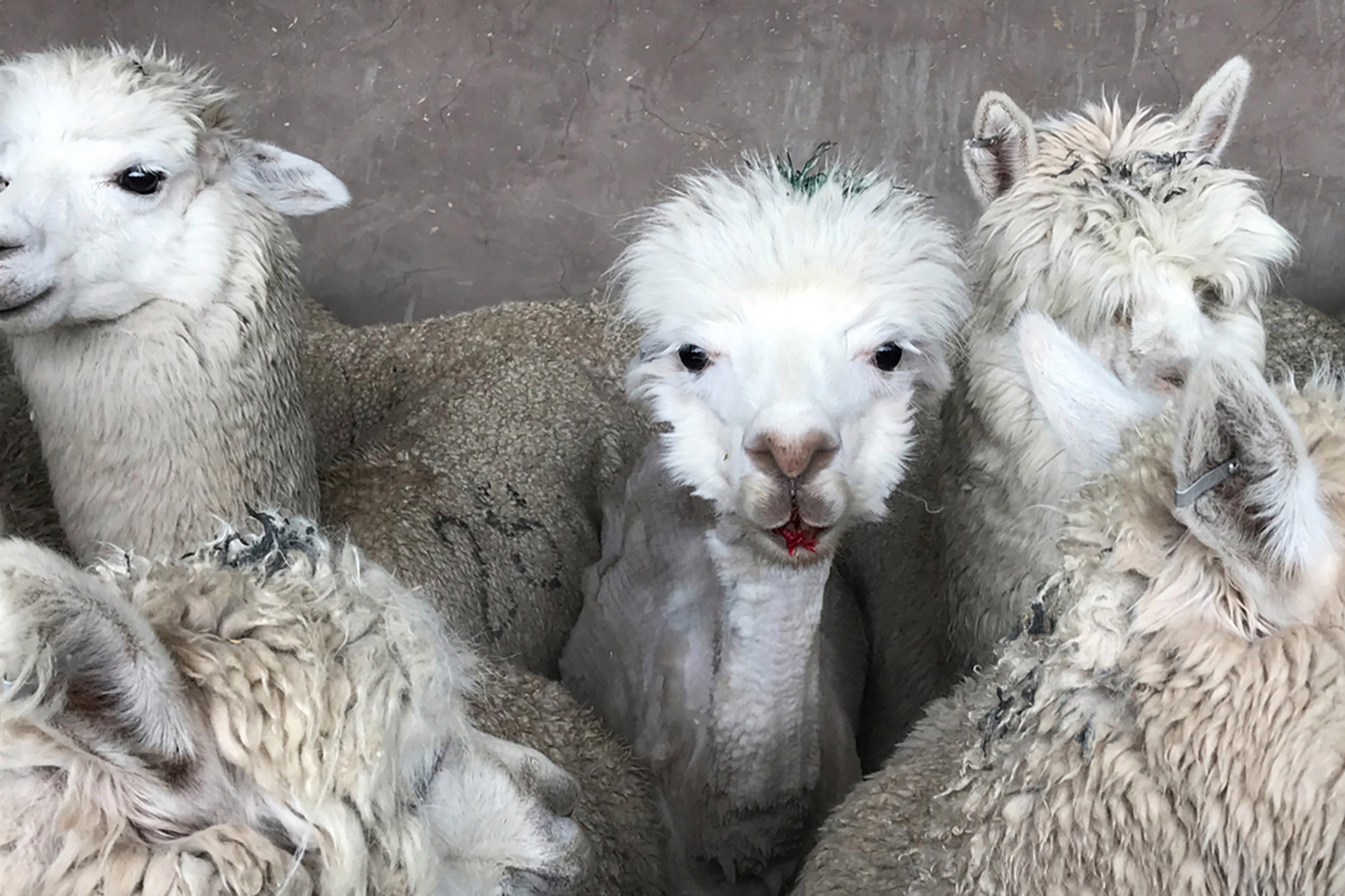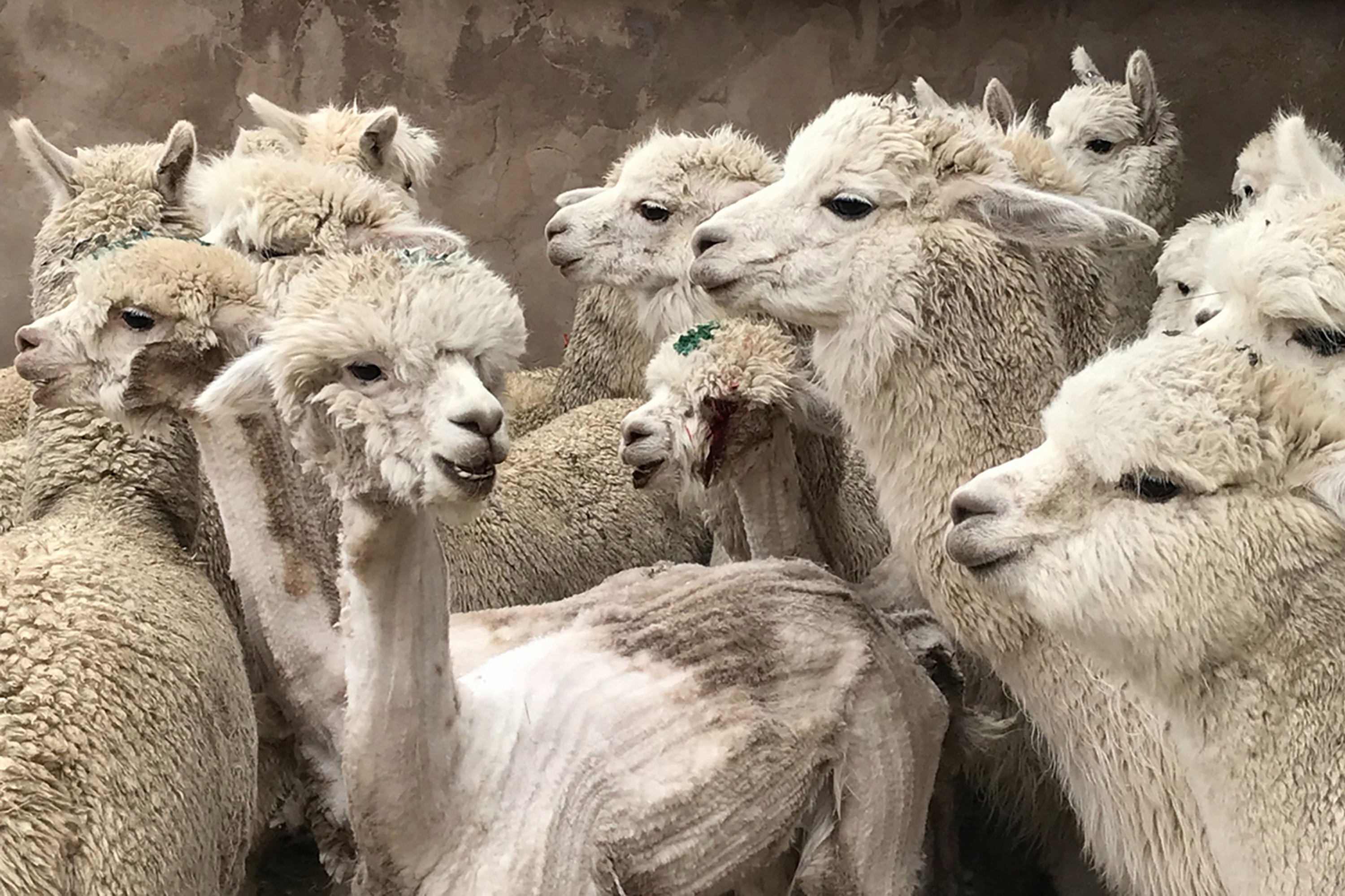More On: animal rights
Ann Taylor to ditch alpaca wool after PETA probe
Alec Baldwin seeks justice in abuse of Dillan, the obese black bear
Faith Stowers: Had George Floyd been a dog, Lisa Vanderpump would protest
Canada Goose to stop buying fur from freshly killed coyotes
Diane Keaton makes her ‘Tiger King choice: Team Carole Baskin
Ann Taylor is packing up the alpaca. Ascena Retail Group, the clothing conglomerate that owns the Ann Taylor, LOFT and Lou & Grey plans to stop using wool from the llama-like creatures amid
Ann Taylor is packing up the alpaca.
Ascena Retail Group, the clothing conglomerate that owns the Ann Taylor, LOFT and Lou & Grey plans to stop using wool from the llama-like creatures amid concerns from animal-rights activists about the sometimes brutal process of producing it.
Ascena’s brands currently sell several sweaters made with fabric blends that include alpaca. But the New Jersey-based company said it’s decided to “fully eliminate” the famously soft fiber from its product lines after the winter 2020 season.
“The company — in partnership with our global suppliers — has always been committed to ensuring that materials used in our apparel products are obtained through ethical and humane processes, with a genuine regard for animal welfare issues,” an Ascena spokesperson told The Post.
Ascena was among dozens of major retailers that People for the Ethical Treatment of Animals urged to ditch the fabric after publishing grisly findings from its undercover investigation of Mallkini, the world’s largest privately owned alpaca farm.
Footage from the Peruvian farm showed workers forcing a screaming alpaca’s legs into a device that PETA likened to a “medieval torture rack” so they could shave the wool off its belly. The group also captured a worker standing on an alpaca’s neck and others crudely stitching up wounds the animals suffered while they were shorn.
“Whether it’s this particular farm or it’s another one, the industry as a whole is cruel to the alpacas,” Laura Shields, PETA’s corporate responsibility manager, told The Post. “That restraint is highly distressing to alpacas because alpacas are prey animals and they fear that they’re about to be killed when they’re pinned down.”

While Ascena said it decided to stop using alpaca before PETA asked about it, Shields said other big fashion firms such as Uniqlo, Valentino and Columbia Sportswear have also banned the stuff.
The farm PETA probed is owned by the Michell Group, which calls itself the biggest alpaca textile group in Peru. The South American country is home to about 80 percent of the world’s alpaca population and is the globe’s largest producer of alpaca fiber.
PETA isn’t certain whether Ascena gets its alpaca wool from the Michell farm, and the company didn’t say who provides the fiber it uses. But Shields argued that the source doesn’t matter because the poor conditions activists captured are likely “standard industry practice.”
“We know that these industries are cruel, so if they’re selling this material they’re complicit in the cruelty anyway,” she said.

Michell acknowledged that some workers were “careless and rough” with the alpacas in the footage PETA filmed. But the company said it’s committed to protecting the animals and rooting out mistreatment on its farm.
Overall, Michell found that only 12 of the nearly 2,400 alpacas shorn there last November, when PETA visited, required small stitches and just 21 suffered “mild” injuries. The firm also said it fired two workers who didn’t follow the proper shearing protocols.
“The PETA video shows the worst minutes of a film that lasts several hours, so, without a doubt, we can state that these images constitute an isolated case, and that they in no way represent our regular practices, much less our philosophy and business culture,” Michell said in a statement after PETA released the findings of its probe.












